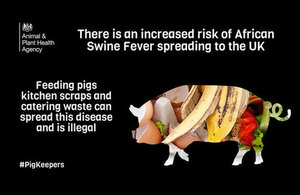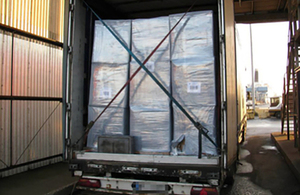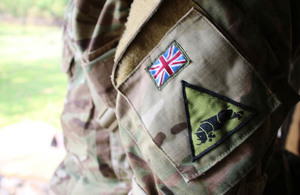Day to day life and muse postings and anything else I would like to share my world with you. General anything that equals forty-two or majorly upsets my state of equilibrium e.g. less than or greater than forty-two.
Tuesday, 30 January 2018
Monday, 29 January 2018
Blue Badge Parking at St. Mary's Hospital
Blue Badge Parking at St. Mary's Hospital -
At the front door there are a few spaces to park, so if you get one of these, park as normal, display your badge in your windscreen and you get 3 hours free.
If these are full, go to any car park, find a space & park up.
MAKE SURE YOU KNOW YOUR REGISTRATION & TAKE YOUR BADGE WITH YOU - do not put it in the windscreen!
Go to the front desk, show your badge & quote your registration. You will then get 3 hours free, but if longer, go back to the desk for advice on how to pay the excess.
This is the current arrangement, which may change in a few months once the systems have settled in. Hope this is helpful!
Jackie Gallaher
Posted in Community (and Emergency) Information for the Isle of Wight
Saturday, 27 January 2018
Outline for future of Isle of Wight NHS services
The Local Care Board has made their recommendation to the Isle of Wight NHS and CCG about the future for NHS services on the Island. OnTheWight has initial responses from some IW politicians.

The Local Care Board have revealed their recommendations for the future of the Isle of Wight health service today (Friday).
As revealed last week, one of the options was to transfer all services except A&E and maternity to the mainland, however, it was not the final choice for officials.
Option four is being recommended, but the five options considered were:
- Option One: Current state/business as usual – current service offering and delivery of operational improvement and demand management plans
- Option Two: Flexible workforce – Current service offering with more joint working arrangements with mainland providers across clinical specialties
- Option Three: Emergency and elective centre with enhanced emergency surgical and critical care support from the mainland – Flexible workforce with mainland providers. Transfer of high risk/complex surgical procedures and patients needing Level 3 (advanced support) critical care after the first 24 hours
- Option Four: Emergency and elective centre with enhanced emergency and elective surgical, critical care and paediatric support from the mainland – Flexible workforce with mainland providers. Transfer of high risk /complex emergency & elective surgery; all patients requiring critical care for more than 24 hours (including high acuity medical patients e.g. acute cardiac requiring Critical Care support); neonates requiring Level 3 (advanced support) Neonatal Intensive Care Unit (NICU) support; and children needing more than 24 hours inpatient care (with exclusions)
Option 5: Enhanced urgent care centre with extended support from the mainland – Enhanced urgent care centre with the majority of patients needing acute care for more
than a few days or surgery requiring an inpatient stay transferred to the mainland.
than a few days or surgery requiring an inpatient stay transferred to the mainland.
Electric shock collars for dogs will be banned in Scotland
Electric shock collars for dogs will be banned in Scotland after thousands backed a campaign to stop the ‘barbaric’ devices.
The Scottish Government said causing pain to animals by ‘inappropriate training methods is clearly unacceptable’.
The collars are still allowed in England (Picture: Shutterstock)
A petition calling for a ban on the collars was signed by more than 19,000 people. The collars were first banned in Wales in 2010, but they are still allowed in England despite calls for a blanket UK ban. Scottish Tory Maurice Golden started the campaign by saying ‘expert advice is clear that electrocuting dogs doesn’t help train them’. The collars are still allowed in England (Picture: Shutterstock) Announcing the ban, Environment Secretary Roseanna Cunningham said: ‘I want there to be no doubt that painful or unpleasant training for dogs will not be tolerated.
‘I am particularly keen to support the work of Scottish enforcement agencies with effective and practical measures so that anyone found causing pain to dogs through the use of collars or other devices can be prosecuted as they deserve.‘ The government said guidance would be finalised in the coming months, with the ban eventually introduced under the Animal Health and Welfare Act 2006. Caroline Kisko, secretary of the Kennel Club, previously said the devices were ‘barbaric’.
She said: ‘In this day and age it is absurd that people are able to give their dog an electric shock in a misguided bid to train them – it is a cruel and lazy method.’ Director of animal welfare charity OneKind, Harry Huyton said: ‘Electric shock collars are cruel, unnecessary and ineffective. ‘I’m delighted that the Scottish Government has today taken a stand against cruelty and taken decisive action against their use.’
Read more: http://metro.co.uk/2018/01/25/electric-shock-dog-collars-banned-scotland-7259580/?ito=social?ito=cbshare
Twitter: https://twitter.com/MetroUK | Facebook: https://www.facebook.com/MetroUK/
Location:
Scotland, UK
February Half-Term Super £7 Day Returns!
Friday, 26 January 2018
Christmas Day 2016 concerns where Holidays, Rubbish and Cars!
https://www.gov.uk/government/news/how-thousands-of-people-spend-christmas-day

How thousands of people spend Christmas Day
Figures from popular public information site GOV.UK give an insight into what people were thinking about on Christmas Day last year.

What did you concern yourself on Christmas Day 2016, Rubbish and Cars!
100,000 had some concern over a vehicle in some way or another
75,000 holidays in some form, visa and Bank holidays
Figures from popular public information site GOV.UK give an insight into what people were thinking about on Christmas Day last year, from taxing their cars to searching for a new job.
Top 10 pages viewed on Christmas Day 2016 were:
- Bank Holidays - 41k pageviews
- Check UK visa - 34k pageviews
- Dartford Crossing charge - 28k pageviews
- Vehicle tax (taxing your vehicle) - 22k pageviews
- Check vehicle tax (checking if a vehicle has tax) - 22k pageviews
- Check state pension age - 18k pageviews
- Job search - 15k pageviews
- Check MOT history - 14k pageviews
- Check child maintenance - 13k pageviews
- Get vehicle information from DVLA - 13k pageviews
Bin collection - Other popular information over the festive period included details on bin collection day, which hit a peak of over 20,000 visits on 27th December 2016 (compared to only an average of 3,000 visits per day during the rest of the year). For this sought after information, visit https://www.gov.uk/rubbish-collection-day.
Caroline Nokes - Minister for Government Resilience and Efficiency said:
"People turn to GOV.UK to check information at the click of a button. From taxing your vehicle, to checking local bin collections and renewing your passport - there are many services now available online, replacing laborious paperwork.
"And we intend to continue adding to the services available, and improving how we set them out clearly and simply - making it even easier for people to access what they need."
Published 24 December 2017
- From:
- Cabinet Office and Caroline Nokes MP
Pig keepers warned not to feed kitchen scraps to pigs due to African swine fever risk
Pig keepers are being reminded not to feed kitchen scraps to their animals to prevent outbreaks of animal disease.

The warning comes after the risk level of African swine fever entering the UK was raised over the summer following spread of the disease in Eastern and Central Europe.
There has never been a case of African swine fever in the UK and it does not affect humans, but it is potentially fatal to pigs. If the disease were to reach the UK it could have a devastating effect on our export market and would also mean the humane culling of pigs on infected premises to prevent further spread.
Keepers are being reminded that it is illegal to feed catering waste of any description or domestic food waste to farm animals in the UK, including pigs kept as pets, as some of the outbreaks of African swine fever in Europe have been attributed to wild boar or domestic pigs consuming contaminated pork or pork products. Viruses such as foot and mouth disease could also be introduced to the UK through food products. This includes food from vegetarian kitchens, as there is still a risk of cross contamination from products of animal origin such as milk.
Strict hygiene measures are essential in preventing disease – people should not take meat or meat products into areas where pigs are kept and should only eat food in designated areas such as staff rooms or the farm kitchen. Pig keepers, farm staff and anyone in contact with pigs should wash their hands before and after eating or preparing food.
UK Chief Veterinary Officer Nigel Gibbens said:
The introduction of African swine fever would have an enormous impact on our pig industry. No matter how many pigs you keep, you need to be aware of the potential consequences of feeding waste food to your animals. Not only is it illegal, but you run the risk of spreading disease which could be fatal to your livestock.You can purchase a range of pig foods from your local agricultural merchant that can be safely fed to your pigs and which is the most reliable way of giving them a balanced diet. Good biosecurity is also essential for minimising disease risk, such as providing dedicated clothing and boots for workers and preventing vehicles which may be contaminated from entering pig premises.
The UK suffered the consequences of pigs being fed illegal waste food in the foot and mouth disease outbreak in 2001. That outbreak is thought to have originated from pigs being fed catering waste containing the virus, which came from outside the UK. The outbreak resulted in the destruction of more than 10 million cattle and sheep and cost the UK many millions of pounds.
Chief Executive of the National Pig Association, Dr Zoe Davies, said:
The health of our pigs is fundamentally important to our sector. A notifiable disease outbreak would not only needlessly result in the loss of many pigs and annihilate our burgeoning export market, but would significantly impact on countless families, their staff, local businesses and tourism for months. Feeding illegal food waste, however harmless it might seem at the time, is just not worth the risk.
- More information about African swine fever and how to spot it. Additional information can be found on AHDB Pork's website. If you suspect African swine fever you should notify the Animal and Plant Health Agencyimmediately.
- For more information, contact Defra press office on 020 8225 7618 or out of hours on 0345 051 8486.
Published 18 December 2017
- From:
- Department for Environment, Food & Rural Affairs, Welsh Government, The Scottish Government, Animal and Plant Health Agency, and Lord Gardiner of Kimble
Thursday, 25 January 2018
Border Force seize 22 tonnes of tobacco at Hull docks
An attempt to smuggle almost 22 tonnes of tobacco into the UK has been prevented by Border Force officers at Hull docks.

The seizure happened on Monday 18 December when officers searched an HGV lorry that had arrived at the port from Rotterdam.
Officers discovered 33 pallets of large cardboard boxes, which were found to contain unprocessed tobacco. The shipment had been misdeclared as paper.
Simon Render, Border Force Senior Officer, said:
This is a significant seizure. By stopping the shipment our officers have starved those responsible of the proceeds of their criminality.The black market cheats honest traders and it is effectively stealing from the public purse. People tempted by cheap cigarettes and tobacco should think again.
Border Force officers use high-tech search equipment to combat immigration crime and detect banned and restricted goods that smugglers attempt to bring into the country.
They use an array of search techniques, which in addition to sniffer dogs includes carbon dioxide detectors, heartbeat monitors and scanners - as well as visual searches - to find illegal drugs, firearms and tobacco which would otherwise end up causing harm to local people, businesses and communities.
Anyone with information about activity they suspect may be linked to smuggling can call our hotline on 0800 59 5000.
Published 29 December 2017
- From:
- Border Force
Labels:
black market,
Border Force,
cheats,
HGV lorry,
Rotterdam,
seize,
seized,
smugglers,
sniffer dogs,
tobacco,
tonnes
Location:
Hull, UK
Win a High speed rib ride for up to 12 people during Cowes Week
Help Rebel Marine to “support our local independent lifeboat” and you could win a rib ride for up to 12 people during Cowes Week 2018, worth over £400.

Don’t miss this great competition being run by Rebel Marine in aid of Ryde Inshore Rescue.
The prize is a one hour high-speed rib ride during Cowes Week 2018 for up to 12 people – a trip worth over £400.
All proceeds will go towards much-needed kit for the Ryde Inshore Rescue crew and boat.
Rebel Marine are asking Islanders and beyond to “help us to support our local independent lifeboat”.
How to enter
All you need to do is make a £20 donation to Ryde Inshore Rescue on the Just Giving page and you will entered into the draw.
All you need to do is make a £20 donation to Ryde Inshore Rescue on the Just Giving page and you will entered into the draw.
Monday, 15th January, 2018 7:32am
By Sally Perry
ShortURL: http://wig.ht/2fXa
More OnTheWight
Labels:
cowes,
cowes week,
high speed,
rib,
rib ride,
Ryde rescue
Location:
Cowes PO31, UK
Tax-Free Childcare to open to children under 6
Childcare scheme available to parents of under 6s from 24 November 2017

The Government is committed to supporting parents with the cost of childcare. This includes doubling free childcare to 30 hours a week and introducing Tax-Free Childcare, which - for the first time - is available to self-employed parents, and all qualifying working parents regardless of their employer.
In April this year, HM Revenue and Customs started rolling out the childcare service; a single website through which parents can apply for both 30 hours free childcare and Tax-Free Childcare.
On 24 November 2017, we will open the service to parents whose youngest child is under 6 or who has their 6th birthday on that day. Parents can apply online through the childcare service which can be accessed via the Childcare Choices website.
More than 275,000 parents have an open childcare account. Of these, more than 216,000 parents received an eligibility code for 30 hours free childcare for September.
However, while the majority of parents used the childcare service without significant problems, we recognise that over the summer some parents didn’t receive the intended level of service when using the website. We have now made significant improvements.
Over the coming months, we will gradually open the childcare service to parents of older children, while continuing to make further improvements to the system. This means we can manage the volume of applications going through the service, so parents continue to receive a better experience and prompt eligibility responses when they apply – almost all parents receive a response within five working days, and most get their decision instantly. All eligible parents will be able to apply by the end of March 2018.
illegal trade in wildlife
The British Army combat the illegal trade in wildlife by partnering with African parks and the Malawian Department of National Parks and Wildlife
This summer, a team of seven British soldiers deployed to Liwonde National Park in Malawi to support African Parks’ rangers counter-poaching effort.

The illegal trade in wildlife is estimated to be worth between £7 -17 billion a year.
Such is the scale of this criminal industry that it is of international concern.
Often linked to other serious organised crime, the illegal trade in wildlife impacts on much more than the existence of many species already on the brink of extinction, undermining governance and the rule of law.
Tackling this deplorable trade is a priority for the UK government, and the reason why the UK Government is holding the illegal wildlife trade conference in London next year. Working with Rangers, the British Army’s soldiers has already had an impact, reducing the number of poachers entering Liwonde National Park.
Minister for the Armed Forces, Mark Lancaster said:
The illegal trade in wildlife significantly damages the ecologies and economies of many African countries, and we are determined to help defeat this problem. British soldiers have had a real impact in helping to counter poaching. Following this, the UK Government will now look at what more can be done to support the affected countries.
The Ranger training is just one example of the UK Government’s wider commitment to tackling the effects of the illegal trade in wildlife.
The Department for Environment, Food and Rural Affairs (Defra) is funding this counter-poaching partnership project with the African Parks’ Rangers in Liwonde National Park. Its aim is to reduce the number of poaching incidents by providing training in proven interception tracking tactics, which will develop the rangers’ counter-poaching skills.
Defra has also announced plans to impose a ban on ivory sales to help bring an end to the poaching of elephants. The proposals will protect elephants and help combat poaching by removing opportunities for criminals to trade illegally-poached ivory.
The Environment Secretary, Michael Gove, said:
The decline in rhinos, elephants and countless other species shames our generation and the need for radical and robust action to protect these treasured species is beyond dispute.That is why we are funding training missions of this kind around the world and we have announced plans to ban the sale of ivory, which should never be seen as a commodity for financial gain or a status symbol.These plans will put the UK front and centre of global efforts to end poaching and the insidious trade in ivory.
The charity Tusk began this project with Defra, working alongside the conservation non-profit African Parks, which has managed Liwonde National Park in partnership with Malawi’s Department of National Parks and Wildlife (DNPW) since 2015.
Charlie Mayhew, Chief Executive of Tusk said:
Poaching is one of the greatest and most immediate threats to Africa’s elephant, rhino and countless other species, but at Tusk we have seen that it is possible to overcome it through a combination of well-trained rangers, information gathering and analysis, and a strong level of local community support.The British Army’s involvement will have a game-changing impact in the project areas, creating a very strong deterrent to poaching and good relations with the local communities. We’ve been delighted to play our role in making this engagement a success.
The project got underway this summer.
Soldiers were selected from a range of units across the British Army. They were chosen based on their natural aptitude for tracking and flair for mentoring.
As a result, the make-up of the team boasted a wide range of skills and experiences including infantry, armored vehicle driving and engineering abilities.
For one member of the team, British Army Seargent Kachoka Kingly, who grew up in the area, the deployment had a very special significance as he returns home to Malawi.
Seargent Kachoka Kingly said:
As a local boy, this means a lot to me and my community. This is my home, and to be given the opportunity to come back and protect my country’s natural treasures, I feel like a hero. Not only have I been able to support the team with my tracking skills, it has been beneficial to the whole team to have me on board, as a translator and cultural advisor.
The soldiers worked side by side with teams from African Parks and the Malawian Department of National Parks and Wildlife to mentor the Rangers.
The joint-training combined elements of information analysis, tracking, bushcraft and infantry skills, all aimed at the successful interception of the poacher.
This partnership allowed both parties to hone and develop their skills resulting in a much more effective, agile force capable of tracking both people and animals over a long distance. The UK soldiers have been able to learn and develop their own tracking skills, something the team do not get to practice in such terrain very often.
The UK Operational Commander of the deployment, Major Tony Viney, described the three-man tracking groups as ‘ghosts in the park.’ Leaving a minimal trace on the ground and being able to cover vast areas, the patrols are a strong deterrent to any poacher considering entering the park.
Comp Sargent Major Francis Condron said:
Tracking is a fascinating skill, and the rangers are so enthusiastic and happy to share their experience.It is such a useful skill to have, and now having this knowledge I think I’ll be able to use it in other situations as a useful survival skill, both with the Army and at home. I have already taught my kids the basics.
Working alongside the British soldiers the Rangers have improved their patrol techniques to better use their equipment and terrain, this includes lengthening their daily patrols and reducing the weight of their equipment by 30% so they can be more agile.
With 548 km2 of woodland and dry savannah to cover, the shift to these long-range patrols has paid off. During the three-month period, the teams removed 362 snare traps, two gin traps and more than 700 meters of illegal fishing nets the park.
There is no doubt that the joint team approach has made a positive impact on counter-poaching in Liwonde National Park. The Rangers made 11 arrests, all of which have led to convictions, and nine poacher camps have been destroyed.
Since 2015, African Parks has held six different courses in Liwonde training a total of 166 rangers from across six of the parks it manages, with a vision to securing habitat and combatting poaching. Significant investments have been made in up-skilling Rangers, providing them with the needed equipment and motivating them. The British Military deployment is part of this broader sustained initiative.
These developments are having a major impact on poaching, not only through the delivery of justice but also by deterring poachers from committing such crimes in the first place.
Tuesday, 23 January 2018
200 suppliers now signing up to Contracts Finder every week
Contracts Finder - which makes it easier for small businesses to find opportunities to supply to government - is celebrating a breakthrough year of growth.

The Contracts Finder platform now has more than 22,000 registered suppliers, with almost two-thirds of them small and medium-sized enterprises (SMEs) - a 53% increase since the beginning of this year. Around 200 suppliers sign up to use the platform every week.
The site now regularly features more contract notices than TED, the EU procurement portal.
Contracts Finder is managed by the Crown Commercial Service (CCS), as part of the Cabinet Office, with the aim of increasing procurement transparency and providing more opportunities for SMEs to supply goods and services to the public sector.
Automatic email alerts are distributed to interested suppliers, with suppliers able to tailor their searches to deliver news about opportunities in their own specialism.
Caroline Nokes, Minister for government Resilience and Efficiency, says:
Contracts Finder is a great way for small and medium sized businesses to search for opportunities in central government and the wider public sector. Smaller businesses are the lifeblood of our economy, and I am keen that they are able to access as many opportunities as possible, helping the Government to achieve our aspiration of spending £1 in every £3 with SMEs by 2022.
Ian Fishwick, Chief Executive of Adept Telecom, Commercial Director for Innopsis, and member of the Cabinet Office SME Panel, says:
Almost all public sector buyers are now registered to use the service including councils, emergency services, central government, universities and the NHS. We are closer than ever to having a single website where you can find the bulk of public sector tenders.
Emma Jones, Small Business Crown Representative, says:
Contracts Finder is the go-to place for SMEs to find government and public sector opportunities. More and more organisations are using it with twice as many UK opportunities published when compared with the TED website. I'd urge SMEs to log on for free and find out what opportunities are out there. We'd like to see the platform go even further and become the single location on which government's major suppliers also list their opportunities, whilst making performance data on existing contracts more transparent.
Open Contracting
Contracts Finder supports the UK Government's commitment to the Open Data Contracting Standard (ODCS), ensuring that all stages of the public procurement process are open and transparent.
The UK is the first G7 country to implement the OCDS for contracts administered by a central purchasing authority - CCS.
This means that the whole process of awarding public sector contracts is visible to the public for the first time. Data and documents are disclosed at all stages of the contracting process. This allows deeper analysis of contracting data by a wide range of users.
The government is currently exploring measures to further increase business with SMEs, including by asking larger suppliers to advertise subcontracting opportunities through Contracts Finder.
For more information on Contracts Finder and to sign up to alerts, visit https://www.gov.uk/contracts-finder
Published 18 December 2017
Last updated 18 December 2017 — see all updates
Last updated 18 December 2017 — see all updates
- From:
- Crown Commercial Service, Cabinet Office, and Caroline Nokes MP
Subscribe to:
Comments (Atom)



